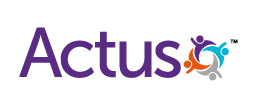| Product | |||
|---|---|---|---|
| Review & Ratings |
No reviews available |
No reviews available |
|
| Description |
Actus is a powerful human resource software designed to streamline HR processes and enhance employee engagement within organizations. This comprehensive platform provides tools for performance management, employee feedback, and talent development, ensuring that businesses can optimize their workforce effectively. With Actus, HR teams can automate performance reviews and goal-setting processes, red... Read more about Actus |
ELMO Software is a comprehensive cloud-based solution that handles various aspects of HR and payroll management. It stands out for its wide range of features, including talent acquisition, performance management, learning and development, and rostering. The software's user-friendly interface simplifies complex HR tasks, making it accessible for users of all skill levels. Its customization options ... Read more about ELMO Software |
|
| Free Trial |
Available |
NA |
|
| Starting Price |
$3 Per User |
NA |
|
| Category Features | |||
| Other Information | |||
| Deployment | Cloud Hosted | Cloud Hosted | |
| Devices Supported | Web-Based, | Web-Based, iPhone, Android, | |
| Pricing Model | Per User | Contact Vendor | |
| Support | Email, Phone, Chat, Knowledge Base, FAQs/Forum | Email, Phone, Chat, Knowledge Base | |
| Target Company Size |
Self-Employed,
Small-Business,
Midsize-Business,
|
Small-Business,
Midsize-Business,
Large-Enterprise-Business
|
|

